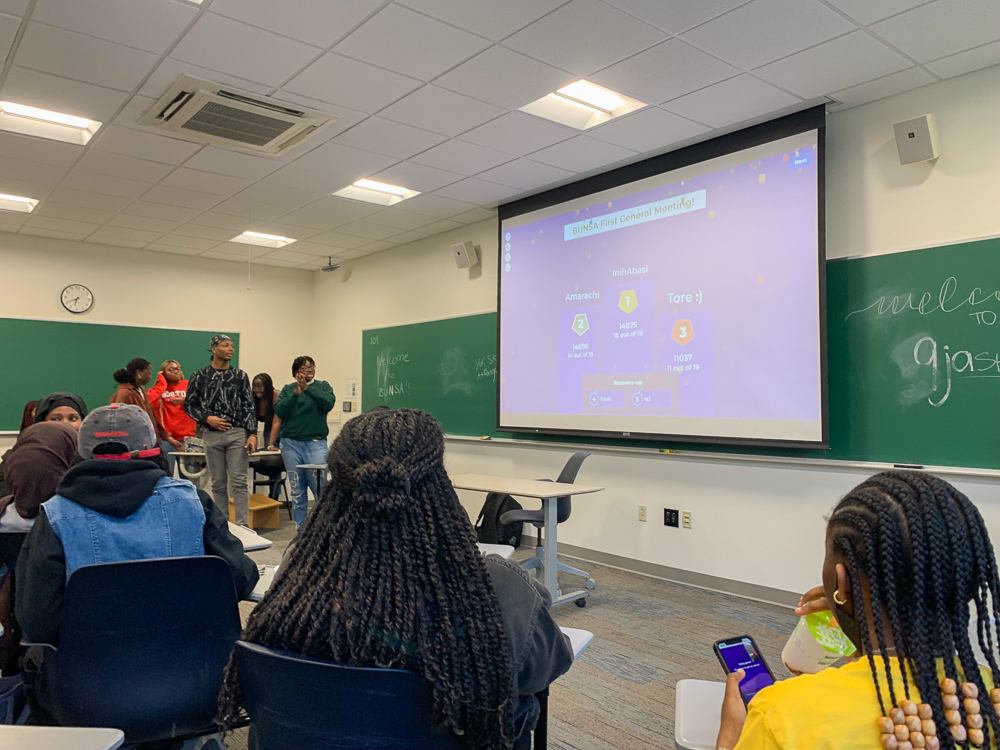
The Boston University Nigerian Student Association — established this year — aims to create a centralized community for Nigerian students on campus. BUNSA’s goal is to “create an open and safe environment” to celebrate Nigerians’ similarities and educate students about major issues affecting Nigeria.
BUNSA is an addition to the other Black, African and Caribbean organizations on campus such as African Students Organization, Students of Caribbean Ancestry and UMOJA: BU Black Student Union.
Añulika Nnadi, president of BUNSA and sophomore in the College of Arts and Sciences, said in an email she envisioned BUNSA to be a “safe space for all Nigerians on campus to be their authentic selves.”
“The idea of NSA started when I told Grace [Adebogun, co-vice president of BUNSA] we should start our own NSA in September 2021,” Nnadi wrote. “Then, funny enough, Nicole [Agwu, co-vice president of BUNSA] asked me about creating an NSA later last semester as well. So, I was like why not all three of us just work on this together?”
Although BUNSA has an executive board, they are open to making the club collaborative and will accept ideas for future events, Adebogun, sophomore in CAS, said at the club’s first general meeting Thursday.
“What we really want for this club is for it to be collaborative like this isn’t about hierarchies and trying to tell you guys what we’re doing right here,” Adebogun said. “We’re all Nigerians and we want this to be a good experience for everybody.”
Brianna Bourne, a sophomore in CAS and the current president of BUSOCA, said cultural clubs like BUNSA are aiming to band together and “uplift” underrepresented communities.
“I’m Jamaican,” Bourne said. “I know people here who are also not Nigerian, but it’s just bringing that community just like underrepresented groups supporting each other … because sometimes there isn’t that support.”
Seynedhee Avenie, a sophomore in CAS and Frederick S. Pardee School of Global Studies, said being a Black student can feel “isolating.”
“Sometimes, it’s hard to find that community, but the fact that there’s so little of us also means that the organizations that foster that community are more noticeable,” Avenie said.
Over two dozen students attended the first general meeting in the College of Communication.
After a short introduction from the editorial board, students participated in a Kahoot game and a song competition. Attendees were laughing, cheering and joking around with each other — even though some were total strangers.
“I didn’t know everyone in the room, but everybody had a strong connection,” Bourne said. “Everybody could connect through music, connect through song [and] history.”
Avenie said she is looking forward to more meetings and events in the future after the first general meeting was “so full of energy.”
“This one was so energetic, and it felt like it has been a club for years,” Avenie said. “It didn’t have the awkward characteristics of first meetings of like, ‘This is who we are. This is what we do. Okay, thank you for coming.’”
The editorial board expects some challenges as they navigate through future semesters, including differentiating themselves from similar organizations and being recognized on campus, Nnadi said.
“A challenge I expected going into this is being able to distinguish ourselves from ASO and being able to be active without stepping on ASO’s toes,” Nnadi said. “Another challenge is making sure non-Nigerians know that they are welcome to events and meetings as well because it’s nothing but love from us.”
In the future, BUNSA plans to expand its e-board, spread awareness of the organization and celebrate Nigerian holidays and culture, they said at the meeting.
“There’s just so many things that this club can do and just knowing that there’s so many options, just seeing where it might go from here because this is already a great turnout,” Bourne said.





















































































































